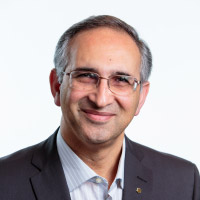United Nations Sustainable Development Goals (SDGs)
Leveraging spatial data infrastructure and integrated analytical platform to support implementation, benchmarking, measuring and monitoring the SDG indicators.
Overview
This research group aims to investigate, formulate, and design methodologies and spatially enabled tools and an integrated platform to support implementation, measuring, monitoring and suggest improvements to achieve Agenda 2030 Sustainable Development Goals. The 2030 Agenda has been known as one of the significant global agreements and came into effect in 2016. In March 2017, the global indicator framework was developed by the UN in order to assess and benchmark the targets. The SDG’s dependency on geospatial information and enabling technologies is mainly due to the primary roles played by data and tools for relating people to their location, place and environment, and to measure ‘where’ progress is, or is not, being made, particularly at sub-national and local levels. However, in the pursuit for sustainable development, many countries and local jurisdictions continue to face a series of impediments that exacerbate their abilities and opportunities to participate fully in the implementation of the United Nations 2030 Agenda, to support national and local development, economic prosperity, and through that, a global and thriving information economy.
This research project will investigate the challenges in effective and sustained access to digital technology, the Internet of Things (IoT), to the provision and exploitation of new data needs, information systems, analytics and associated enabling tools, and technologies to support the timely and reliable implementation and monitoring of the progress in SDGs.
The world can be resilient and more sustainable and pleasing to live by 2030 if countries precisely align with SDG indicators.
The benefits of this platform include:
- Enhancing the methodologies and implementation frameworks to support evidence-based policy making towards achieving the SDGs
- Formalising reusable geospatial tools for producing the SDG indicators, enabling benchmarking and comparison
- Designing a dynamic platform rather than available static dashboards
- Supporting national and local jurisdiction to improve their current static monitoring dashboards
- Assisting governments to predict the future trends of SDG indicators
Sustainable Development Goals
PowerPoint presentation slide on SDGs [pptx]
No poverty
End poverty in all its forms everywhere
Zero hunger
End hunger, achieve food security and improved nutrition and promote sustainable agriculture
Good health and well-being
Ensure healthy lives and promote well-being for all at all ages
Quality education
Ensure inclusive and equitable quality education and promote lifelong learning opportunities for all
Gender equality
Achieve gender equality and empower all girls and women
Clean water and sanitation
Ensure availability and sustainable management of water and sanitation for all
Affordable and clean energy
Ensure access to reliable, affordable, sustainable and modern energy for all
Decent work and economic growth
Sustainable economic growth will require societies to create the conditions that allow people to have quality jobs
Industry, innovation and infrastructure
Build resilient infrastructure, promote inclusive and sustainable industrialisation and foster innovation
Reduced inequalities
Reduce inequality within and between countries
Sustainable cities and communities
Make cities and human settlements inclusive, safe, resilient and sustainable
Responsible consumption and production
Ensure sustainable consumption and production pattersn
Climate action
Take urgent action to combat climate change and is impact
Life below water
Conserve and sustainably use the oceans, seas and marine resources
Life on land
Protect, restore and promote sustainable use of terrestial ecosystems, sustainably manage forests, combat desertification, and halt and reverse land degradation and halt biodiversity loss
Peace, justice and strong institutions
Promote peaceful and inclusive societies for sustainable development, provide access to justice for all and build effective, acccountable and inclusive institutions for all
Partnerships for the goals
Strengthen the means of implementation and revitalise the Global Partnership for Sustainable Development
Research team
Industry partners and collaborating organisations
Land Equity International
United Nations
World Bank
Contact
- Professor Abbas Rajabifard

abbas.r@unimelb.edu.au +61 3 83440234
Publications
Assarkhaniki, Z., Rajabifard, A., & Sabri, S. (2020). International Journal of Disaster Risk Reduction The conceptualisation of resilience dimensions and comprehensive quantification of the associated indicators: A systematic approach. International Journal of Disaster Risk Reduction, 51(March), 101840. Retrieved from doi.org/10.1016/j.ijdrr.2020.101840
Qiao, Y.-K., Peng, F.-L., Sabri, S., & Rajabifard, A. 2019. Low carbon effects of urban underground space. Sustainable Cities and Society. Sustainable cities and society. 45: 451–459.
Rabiee, M., Rajabifard, A., 2019. Smart sustainable cities for all: A socio-spatial approach, Coordinates Magazine.
Sabri, S., Ho, S., Rajabifard, A., 2018. Implementing the ‘20-minute neighbourhood’: Leveraging New Spatial Data and Technologies to Support Planning for a Sustainable Metropolitan Melbourne. In: China Architecture and Building Press.
Scott, G., Rajabifard, A., 2017. Sustainable development and geospatial information: a strategic framework for integrating a global policy agenda into national geospatial capabilities. Geo-spatial Information Science. 20:2. 59–7.
Nicolas, R., & Lacroix, P., Giuliani, G., Upla, P., Rajabifard, A., & Jensen, D., 2016. Open Spatial Data Infrastructures for the Sustainable Development of the Extractives Sector. In: Coleman, D., Rajabifard, A. & Crompvoets J. (Ed.). Spatial Enablement in a Smart World. [s.l.]: GSDI Association press.
Rajabifard, A., 2016. Integrating Geospatial Information into Sustainable Development Goals. Geospatial World Magazine.
Conferences
Rajabifard, A., 2019. Strategic Pathways Towards Disaster Resilience- Leveraging National Land and Geospatial Systems. Paper presented at the FIG Working Week 2019, Hanoi, Vietnam.
González, L., Rajabifard, A., Paez, D., Sabri, S. and Camacho, R., 2019. A Proposed Methodology to Assess Disaster Risk within a Land Use Cover Change Model, Contributing to SDGs - Case Study: Bogota, Colombia. Paper presented at the FIG Working Week 2019, Hanoi, Vietnam.
Agunbiade, M., Rajabifard, A., Oluyomi, A., 2019. Land Administration Integration Framework for Affordable Housing Production: the Roles of Spatial Data Infrastructures, Institutional Processes and Policies. Paper presented at the FIG Working Week 2019, Hanoi, Vietnam.







